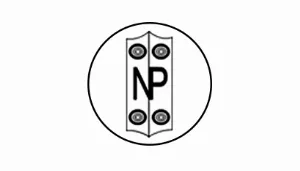Traditional and customary practices sacrosanct, says CPO
Chakhesang Public Organisation (CPO) and NSCN (Khango) have expressed objection to the proposed move by the Centre to implement the Uniform Civil Code (UCC).
CPO: In a letter to the member secretary Law Commission of India, CPO president Vezuihu Keyho and general secretary Chepetso Koza reminded that as a major tribe of Nagaland, Chakhesangs have distinct language, religion, culture, traditional and customary practices that vibrantly rule the roost despite its people being converted into Christianity some 128 years ago from animism, the faith the forefathers.
CPO, therefore, said that the traditional and customary practices of inheritance, adoption and succession remain sacrosanct and that these practices do not conflict with any of the modern adjudication laws in view of the religious or social practices of the Nagas being enshrined in Art 371(A) (a) (i) (ii)& (iii).
CPO referred to a portion from the memorandum to Simon Commission in929– “Our language is quite different from those of the plains and we have no social affinities with either Hindus or Muslims. We are being looked down upon by one for our ‘beef’ and the other for our ‘pork’….”
CPO said that the diverse religions, languages, ethnicities, races and all the diversities were not manmade but a creation of God, including India.
According to CPO, the framers of the Constitution of India after understanding and acknowledging the diverse historical, traditional and cultural realities, ensured the recognition of every diverse segment and the protection of their religion, language, customary law and their social practices had it enshrined in Art 25 of the Constitution of India.
CPO said it held the belief that even in India’s 76th year of Independence, the nation’s integrity has never been threatened by accommodation of the diversities in the Constitution. In fact, it said as long as the religious and ethnic minorities feel secured by the constitutional protections, “the national integrity remains firm.”
CPO however noted that in the event the security of the minor communities was jeopardized, there would be social and political unrest in the country.
It pointed out that Hindus who comprise of 79.8% of India, tended to marginalize by bullying the minorities with “majoritarianism” as of today in the name of strengthening the unity of the nation.”
It referred to the ongoing ethnic clash between the majority Meiteis undertaking ethnic cleansing against the minority Kukis, which has tarnished the image of BJP in particular and of India in general.
CPO said that any matter under the purview of personal laws, even the application of a practice on a given subject within a community varied from one village to another village in the context of Nagaland.
CPO said minorities will be compelled to react at the present rate of intolerance of the religious majority against the religious minority if such “superiority complex” is to be legalized in the camouflage of UCC, and under the strength of such law. It cautioned that the consequences of imposing UCC will be social unrest.
CPO said that the stand of Chakhesangs as a tribe was for peaceful coexistence, and therefore they have decided to oppose UCC in letter and spirit.
Direct infringement on the rights of Naga: NSCN (Khango)
In another statement, NSCN/GPRN (Khango) also raised strong objection to Government of India’s move to implement the Uniform Civil Code.
In a statement issued through its MIP, the group pointed out that the Naga people consists of multiple cultural groups that practice varied customary laws and traditions, speak different languages, etc., that serve as identity markers. Though most communities practice Christianity, MIP said that there were also practitioners of indigenous religions.
Similarly, MIP said the customary laws were also unique to each Naga community and cannot be homogenized under one law.
NSCN (Khango) maintained that UCC, and everything that it entails,was a direct infringement on the right of each and every Naga community, not only to self-determination but also to practice these traditions and customs that were crucial to the identity as a people.
While several organisations have aptly pointed out that the implementing a law such as Uniform Civil Code would be disastrous and detrimental to the very survival of the Nagas, MIP said it “cannot simply sit around and watch it unfold but would repress any divisive force or laws by disposing all available resources at hand.”
MIP said that the government asserts its stand that the Naga people will not be subjugated again, this time under the draconian UCC.

